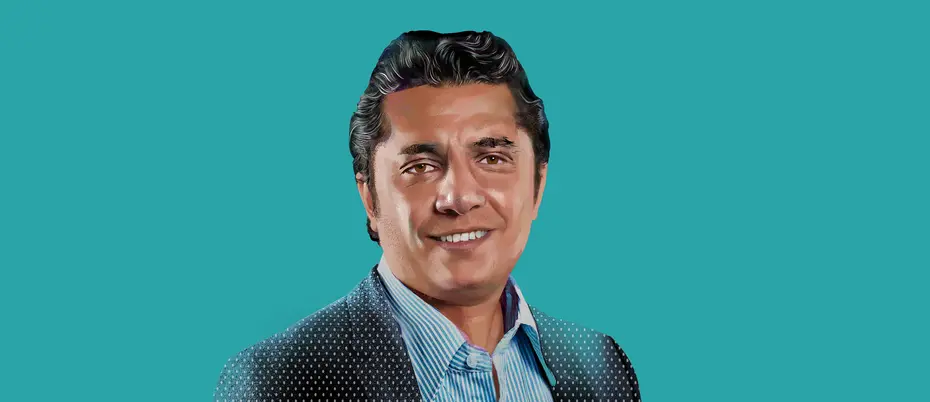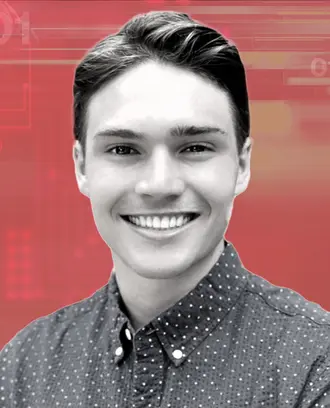Entrepreneurship
How this health care CEO prioritizes and tests exciting ideas
For Amir Barsoum, not every pain is worth the fix. That’s why he looks at the opportunity before coming up with an idea to solve a problem.
The idea for digital health care company Vezeeta started on a piece of paper.
Amir Barsoum was working as the head of strategy for the Middle East and North Africa region of pharmaceutical company AstraZeneca. He could see behind the scenes how the health care and pharmaceutical sectors had not changed the way they do business in decades.
“I even wrote on a piece of paper: ‘If I choose something in health care, I would be in the business of converting patients into consumers.’ Basically by giving them data and information of choice to really decide on where to go, when to go, how much to pay, and so forth,” Barsoum said.
That was eight years ago, and today, Vezeeta is in 55 cities across six countries — Egypt, Saudi Arabia, Jordan, Lebanon, Kenya, and Nigeria — helping patients book appointments, schedule e-consults or home visits, and order medications among other health care services using the company’s app. Barsoum, who earned his MBA from MIT Sloan in June, was named to Fortune’s “40 Under 40” lists this year. We asked him about how he structures ideas, why he values real-life trials over theoretical tests, and more.
What inspires you?
I always start by not only visualizing a pain to solve, but I visualize the outcome if it is solved. And I ask myself: Is this something exciting that I'm willing to go after? Or not really? Because I don't think offering solutions is enough. I think pain is a very important starting point, but I don't think every pain is worth answering, or worth solving, and sometimes if you solve the pain, I'm not sure whether you're creating a better place that you would like to be playing in or not.
Who inspires you?
There are many people in life who play the role of mentor, and people I look up to. My dad is a very big influence in my life and a role model for sure. I always bounce ideas off him since he is also from a health care background. There are a couple of investors I've worked with that I also like to problem solve and bounce ideas back and forth with.
Where do you get ideas?
I look at opportunity before I look at the problem, and I think that's where ideas come from. Ideas come from what we see of day-to-day operations, and then bouncing them around.
How do you keep track of new ideas?
I structure them into three buckets: The first bucket is ‘important, must have, and want to do it today’; the second bucket is ‘important, but let's think about it, plan it more, analyze it more, and let it cook’; then the third bucket is for ‘ideas that need to be parked for now and revisited when the time is right.’
For the first bucket, we hire someone to directly report to me to work on this idea. Bucket number two I usually pass it to my chief of staff team, strategy team, or the product team to further analyze and plan before we take it forward. And the third is really parked and set aside.
Who do you share a new idea with?
Everybody. I share it with my wife. I share it with my kids when I'm driving them to school. I share it with my friends when I'm having dinner. I want to hear what the worst part about this idea is, from everyone I can.
How do you test ideas?
I don't believe that ideas can be tested theoretically. A real-life trial would be the way we do testing. We do trials, and they need to be as close as it gets to reality. Maybe you contain the trials in a particular geography or particular segment of your customers, or with a particular group of people.
When do you know it is time to abandon an idea?
When we do a trial [for customers] we never tell them that it's a trial, we make them believe it is a full launch. I abandon the idea if I don't find a little group of customers who are dying for this idea.
What was your worst idea?
Thinking that a software could save money and time. That was so naive. Software creates discipline, and makes data available, structures information, but it does not save time and money whatsoever. And we had done that with our electronic medical records that we sold to the doctors. Doctors couldn't find true value in that because it takes time and money — because they also needed to upgrade the teams that were working in their practices to make it happen. That was a terrible consequence and idea at the time, and it cost us a hell of a lot of money.
What is the biggest idea you’re working on right now?
Health care is a hugely fragmented space. It's already composed of many very different components — doctors, labs, hospitals, inpatient, outpatient, medication, so many pieces. And what I'm really looking to do is consolidate this in one app and provide it to patients so whenever they think of health care, that's their go-to place. This is the big thing that we're working on, and finding out how this would work, how it will basically make sense to patients and to consumers, and availing this to other stakeholders.
At MIT Sloan, we talk about ideas made to matter — ideas that are carefully developed and have meaningful impact in the world. In that context, what is your idea made to matter?
I personally believe that health care has traditionally been catering to providers, or to pharma companies or insurance players. Every entity on the face of this planet says they're patient-centric. But really being patient-centric is being anti-insurer. Patient-centric basically means telling them who's the good provider, who's the bad provider. Patient-centric is not something that will allow you to be playing on both sides. When I go to a restaurant, I’m a consumer. When I go to the barber shop, I’m a consumer. When I go to the clinic, they call me a patient. The reality is they take away my power to decide and choose, and put it in hands of the provider. We are in the business of converting patients to consumers by giving them options of choice.




